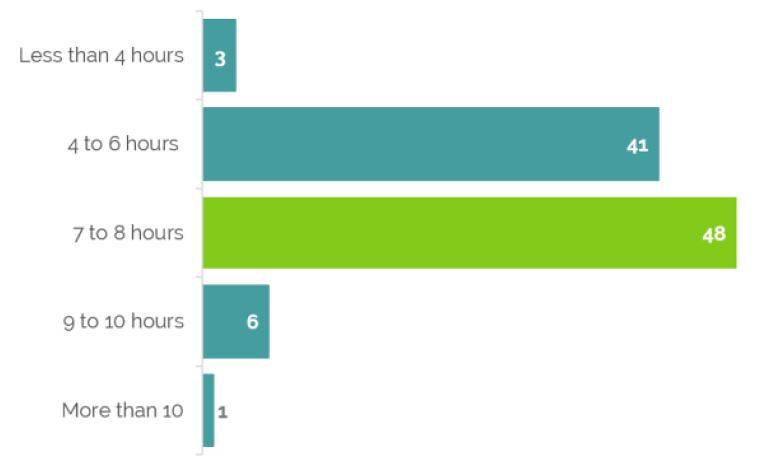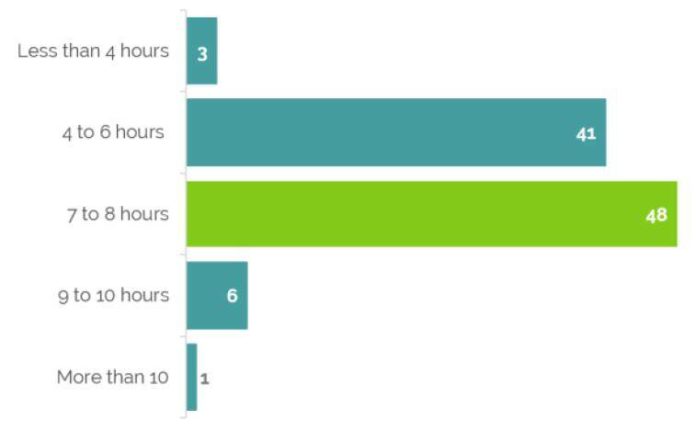SINGAPORE: Only half of Singaporean adults get enough sleep at night, according to a survey conducted by market research firm YouGov released on Tuesday (Dec 11).
While the average adult should get between seven and eight hours of sleep daily, only 48 per cent of Singaporean adults do.
The data, based on a survey of 1,022 Singaporeans, showed that four in 10 adults get less than seven hours of sleep a night.

About 3 per cent of Singaporeans get less than four hours of sleep a night. (Source: YouGov)
“In a fast-paced metropolis like Singapore, only about half its citizens are getting enough rest. What’s particularly worrying is lower-income Singaporeans are twice as likely to get less than four hours of sleep a night,” said Mr Jake Gammon, the Asia-Pacific head of YouGov Omnibus.
The survey, which was conducted last month, found that while 3 per cent of Singaporeans get less than four hours of sleep, this proportion doubled among those with a monthly household income of less than S$4,000.
In addition, three-quarters of Singaporeans wake up at least once a night, the survey found.

On average, only a quarter of Singaporeans sleep through the night. (Source: YouGov)
“Once Singaporeans turn 55 however … their quality of sleep seems to improve, suggesting demanding work could be the cause of sleepless nights,” said Mr Gammon.
More than half of the respondents (53 per cent) also said they sleep with a “chou chou” or comfort object such as a stuffed toy or security blanket, the survey found.
Women were more likely to sleep with a comfort object at 61 per cent compared to men at 44 per cent.
Those aged between 25 and 34 were more likely to use a comfort object (61 per cent) compared to those aged 55 and above (32 per cent).
However, there was no indication that those who sleep with a comfort object have better or longer hours of sleep than those who do not, the study noted.





